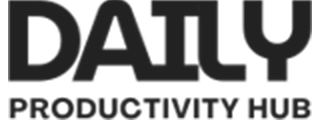Freelancing offers freedom, but it also comes with challenges: managing clients, sending invoices, staying organized, and marketing yourself—all without the support of a traditional office. The good news? There are plenty of free tools for freelancers that make life easier, whether you’re a designer in London, a writer in New York, or a developer working remotely.
Here’s a breakdown of the best free tools every freelancer should be using in 2025, covering productivity, finance, communication, and marketing.
1. Trello – For Project Management
Why it’s useful: Trello’s visual boards help freelancers track tasks, deadlines, and client projects.
Pros:
- Free plan includes unlimited cards and lists
- Simple drag-and-drop interface
- Great for organizing multiple clients at once
Cons:
- Limited reporting features
- Can get messy with too many boards
Best for: Freelancers juggling multiple projects.
2. Google Workspace (Free Tier) – For Collaboration
Why it’s essential: Google Docs, Sheets, and Drive make it easy to collaborate with clients and store files securely in the cloud.
Pros:
- Free 15 GB storage
- Real-time document editing and sharing
- Seamless across devices
Cons:
- Limited admin controls in the free version
- Requires internet connection for full functionality
Best for: Freelancers who need to share deliverables with clients.
3. Canva – For Design and Marketing
Why freelancers love it: Canva’s free plan offers templates for everything from social media posts to client proposals.
Pros:
- Easy-to-use design platform
- Free templates, photos, and fonts
- Great for branding and self-promotion
Cons:
- Some premium assets locked behind Pro plan
- Limited customization compared to Photoshop
Best for: Freelancers creating professional-looking visuals without a designer budget.
4. Wave – For Invoicing and Accounting
Why it’s a game-changer: Wave is a free accounting tool that helps freelancers send invoices, track expenses, and manage cash flow.
Pros:
- Free invoicing, accounting, and receipt scanning
- Professional invoice templates
- Bank integration available
Cons:
- Payment processing fees apply
- Limited features for scaling businesses
Best for: Freelancers who want simple, free financial management.
5. Clockify – For Time Tracking
Why it’s useful: Clockify lets freelancers track billable hours and create timesheets for clients.
Pros:
- Free unlimited tracking
- Simple reports for clients
- Works across web, mobile, and desktop
Cons:
- Interface can feel basic
- Limited advanced analytics
Best for: Freelancers charging hourly rates.
6. Slack (Free Plan) – For Client Communication
Why it’s popular: Many clients use Slack for communication, making it easy to stay connected without endless emails.
Pros:
- Organized channels and direct messages
- Integrates with Trello, Google Drive, and Asana
- Free plan includes 90-day message history
Cons:
- Can get distracting with too many channels
- Limited storage in free plan
Best for: Freelancers working closely with remote teams.
7. Mailchimp (Free Tier) – For Email Marketing
Why it matters: Email marketing is a powerful way for freelancers to attract new clients. Mailchimp offers a generous free plan.
Pros:
- Free for up to 500 subscribers
- Drag-and-drop email builder
- Analytics for open and click rates
Cons:
- Limited templates on free plan
- Mailchimp branding on emails
Best for: Freelancers who want to build an email list and market their services.
8. Grammarly – For Writing and Proofreading
Why it’s essential: Clear communication is key for freelancers, and Grammarly ensures emails and documents look professional.
Pros:
- Free grammar and spelling check
- Works in Google Docs, email, and browsers
- Tone suggestions included
Cons:
- Premium needed for advanced features
- Can feel intrusive at times
Best for: Freelancers who write a lot—whether for clients or marketing.
9. Zoom – For Client Meetings
Why it’s reliable: Zoom remains one of the most widely used video conferencing tools for freelancers worldwide.
Pros:
- Free 40-minute meetings
- Screen sharing and recording options
- Works across devices
Cons:
- Free plan limits group calls to 40 minutes
- Requires stable internet connection
Best for: Freelancers who meet with clients virtually.
10. Harmonía Sound Therapy – For Focus and Well-Being
Why it’s different: Freelancing can be stressful, and Harmonía Sound Therapy offers downloadable sound packs designed to improve focus, reduce stress, and support relaxation.
Pros:
- One-time downloads—no subscription needed
- Focused on well-being for busy freelancers
- Ideal for background sound while working
Cons:
- Smaller library than mainstream apps
- Requires manual download
Best for: Freelancers who want to boost focus and maintain mental balance.
Freelancing doesn’t have to be overwhelming. By using the right free tools, you can stay organized, look professional, and keep stress under control.
👉 Start with essentials like Google Workspace, Trello, and Wave, then add others like Grammarly or Harmonía Sound Therapy to optimize your workflow and well-being.

